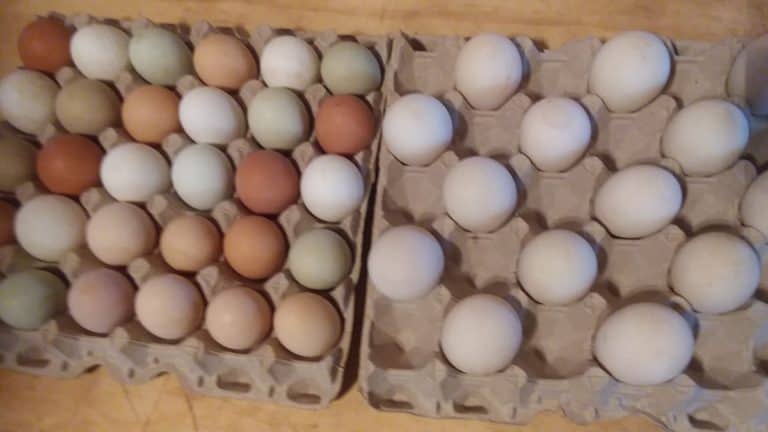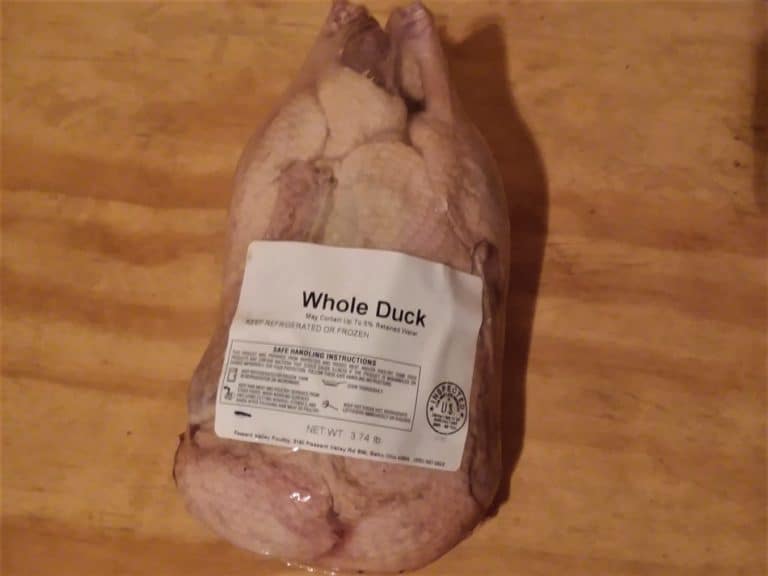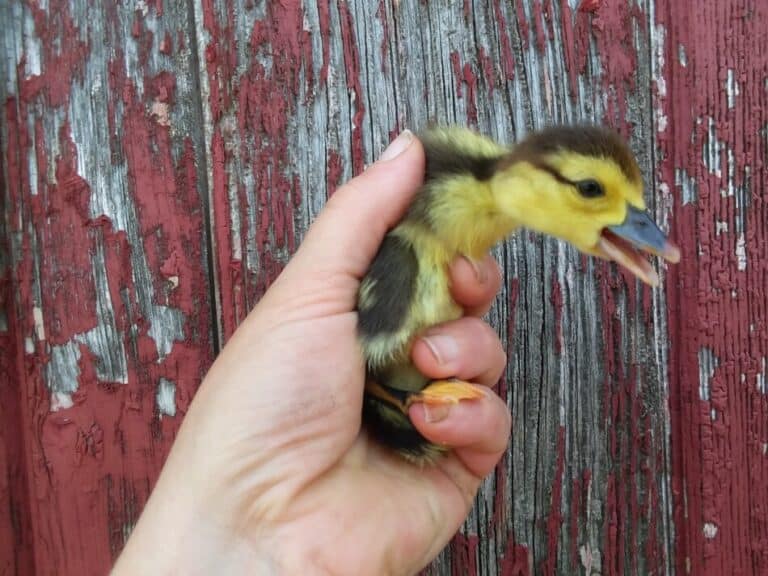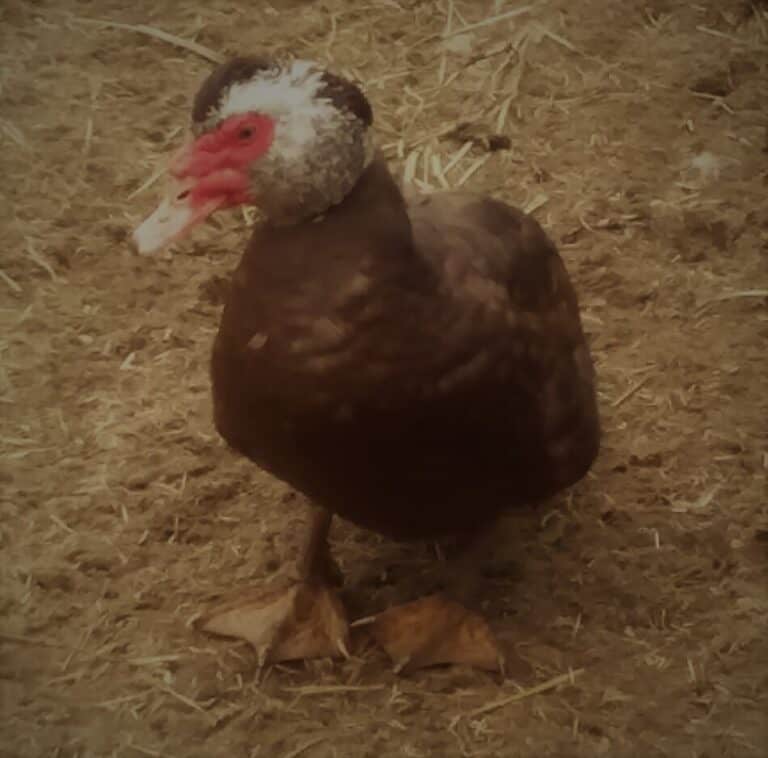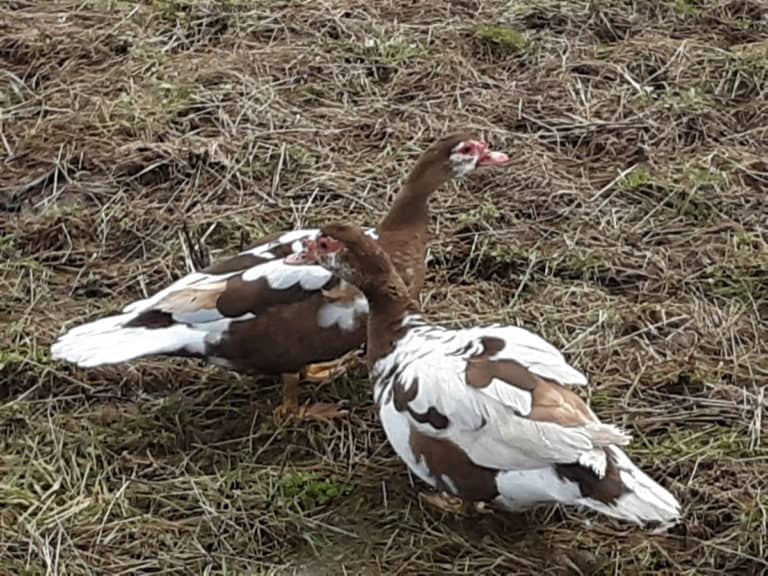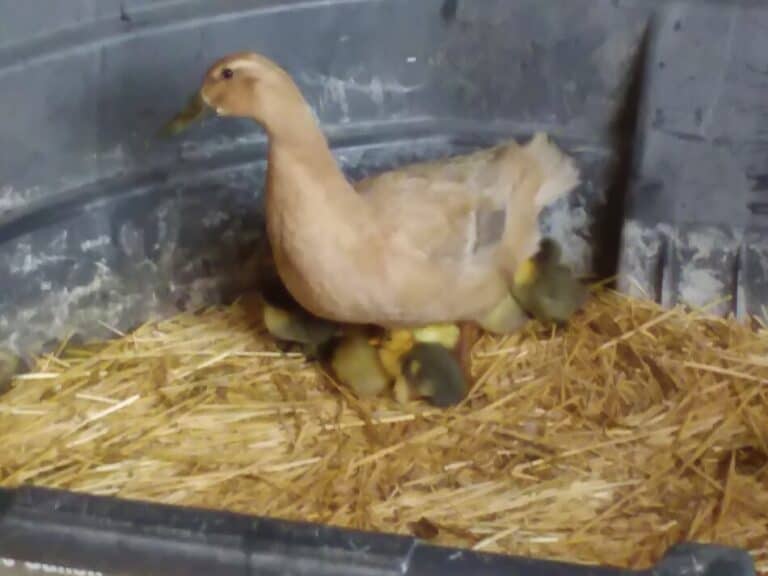How Cold Is Too Cold For Ducks?
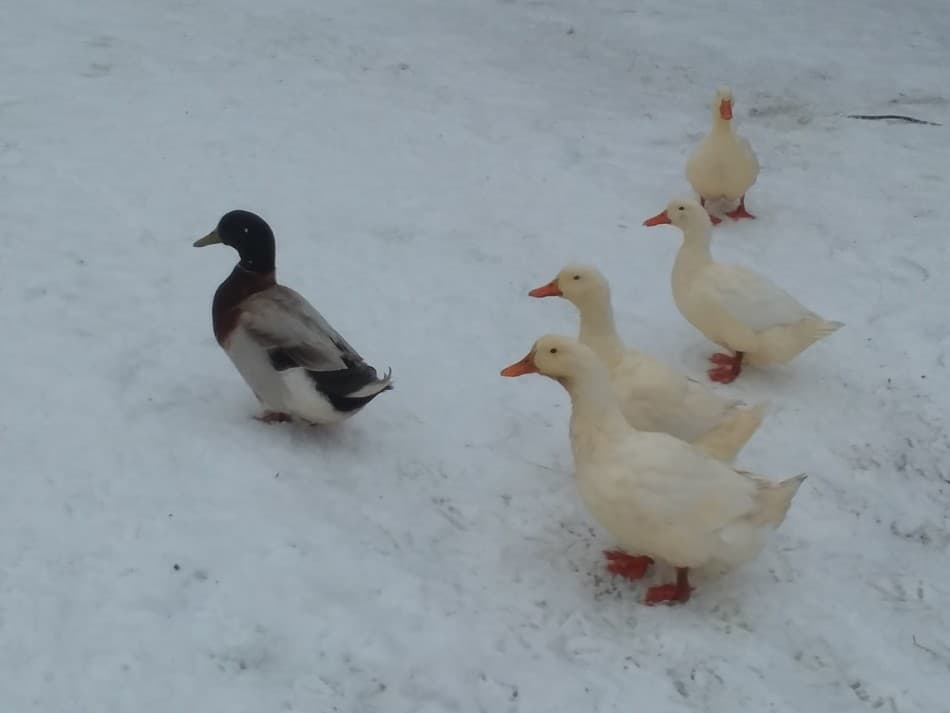
We want our ducks to be happy and get plenty of exercise, all year. It’s easy to feel confident about letting your ducks zoom around your yard in the summer.
What about when the weather isn’t so great? Can ducks be outside in the winter, too?
Adult ducks are fine in the cold, as long as they have a dry shelter that blocks the wind. Ducklings need supplemental heat until they are fully feathered, then they need a dry shelter and wind block, as well.
The key here is age of the ducks.
Once ducks are fully feathered, even if they are not yet adult size, they will be able to handle most any weather, as long as they have access to a dry shelter.
Do Ducks Need A Coop? goes over the times when your ducks need shelter and what specific types of shelter will work for them.
| Age of ducklings | Temperature needed | Comments |
| 1st week | 90 | Brooder only |
| 2nd week | 85 | Can go outside on nice days, must be able to walk back to brooder at will |
| 3rd week | 80 | Discontinue heat during day (as weather allows) |
| 4th week | 75 | Increase in pen space is needed |
| 5th week | 70 | No heat needed (as weather allows) |
| 6th week | 65 | Ducklings still need shelter from rain and wind, no swimming until fully feathered |
Ducklings will quickly outgrow their need for supplemental heat, but should always be started in a brooder, even in the summer.
Ducklings are temperature sensitive
The biggest key to knowing if your ducklings are warm enough is to see how they are acting.
If they are huddling together, they are too cold.
If they are spread out, as far away from the heat as they can get, they are too hot.
Once your ducklings have fully feathered out, meaning you do not see anymore of the downy feathers, they are much more weather resistant.
These fully feathered young ducks will still need shelter but do not need additional heat.
Brooding Ducklings, will give you the specifics on care for your day old ducklings.
Ducklings can get chilled in the rain
Your ducklings need to have the ability to get out of the wind and the rain. As crazy as it sounds, being wet can kill a duckling when it starts to chill.
This is especially true for any ducklings that have been slow growers or just a little behind the rest of the group. A stressful event like getting caught out in a spring downpour will result in death for the weaker ducklings.
There is an easy preventive here, keep the ducks close to a shelter until they are fully feathered. This way the pop up rains of the spring and summer don’t catch you and your ducklings off guard.
Entrance to the shelter must be easy for ducklings
Another common problem with ducklings, or any young poultry, really, is that we assume since it is obvious to us how to get into the shelter, it is also obvious to the ducklings.
Not so. When your ducklings get stressed, they stop thinking.
Even though they walked out the door to get outside, if they can’t tell where the door to the brooder is from the outside pen, they will end up “lost” and cold.
Generally, ducklings are better at getting into trouble than getting out of it. This is true for Just like you have to “kid proof” your house, the same goes for the duckling area.
The entrance to their shelter must be obvious and super easy for them to find.
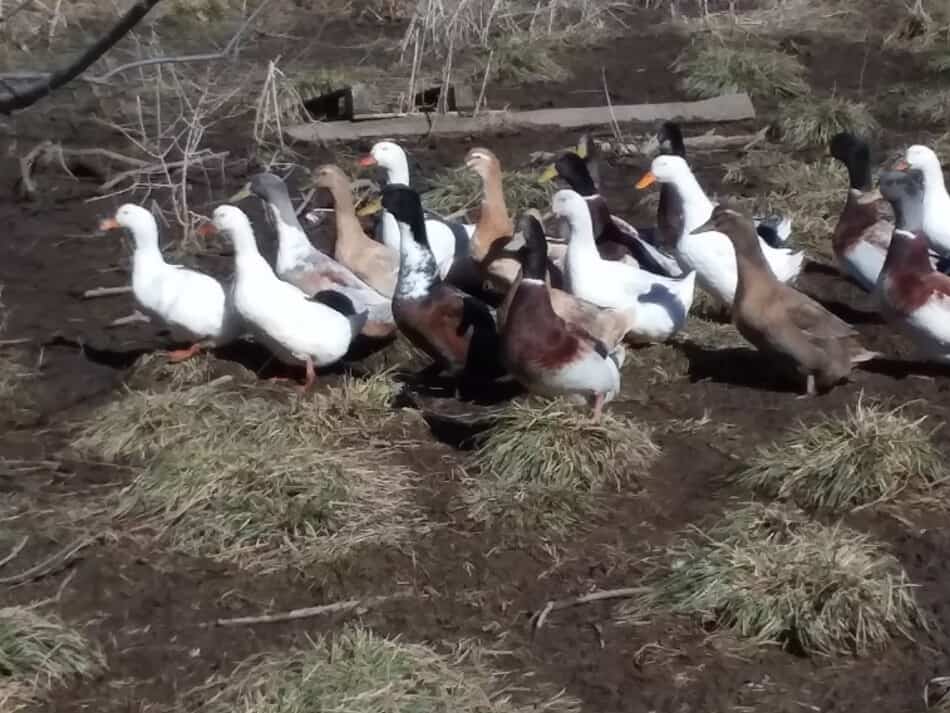
Adult ducks need shelter and bedding in the cold
It may surprise you to know that adult ducks like to be out in the winter. Ours love to zoom around in the snow. Even in really cold weather, I’m talking about single digits for our area, the ducks still like to be out and about.
But…the ducks have the option to be where they choose. This is key!
Our ducks can go into the barn and hang out on the straw bedding or roam about in the barnyard. They please themselves most days and will find the place that they feel is appropriate for the day.
If the ducks feel that it is too cold to be outside, then they will stay in. It’s truly that easy.
The picture at the beginning of the article is of some of our ducks trotting around in the snow. They seem to like it.
When Are Ducks Fully Grown? shows you the things you can look at on your ducks to get a good guess of their age.
Ducks need shelter from the wind and dry bedding
As long as your ducks have a place to get out of the wind and a dry place to bed down, they will be happy. Even in cold weather.
Check the bedding once in a while, especially after a thaw, to make sure the ducks have a dry place to rest. This is especially true if they are in a shelter or duck house that is not part of a larger building.
If you notice the ducks are not using their shelter, check to see if it is dry. If not, that’s a problem you can easily fix with more bedding or moving the shelter to higher ground.
If your area is super flat (no higher ground to move the ducks to), add a big pile of bedding or put the shelter up on pallets to keep the ducks dry. Have a simple ramp so they can easily walk up into their shelter, especially after raising it.
As long as your ducks can choose to be in their shelter or outside, they will be where ever suits them the best.
If you are looking for more information on ducks (and geese) Metzer Farms of California has a great site with easy to read articles. Their main business is selling hatched ducks and geese, so check them out for breed information, as well.
I get a ton of use out of their site because not only are they a hatchery they also raise and sell the birds and eggs. They have hands on information about caring for your ducks, look in the menu section under blog.
